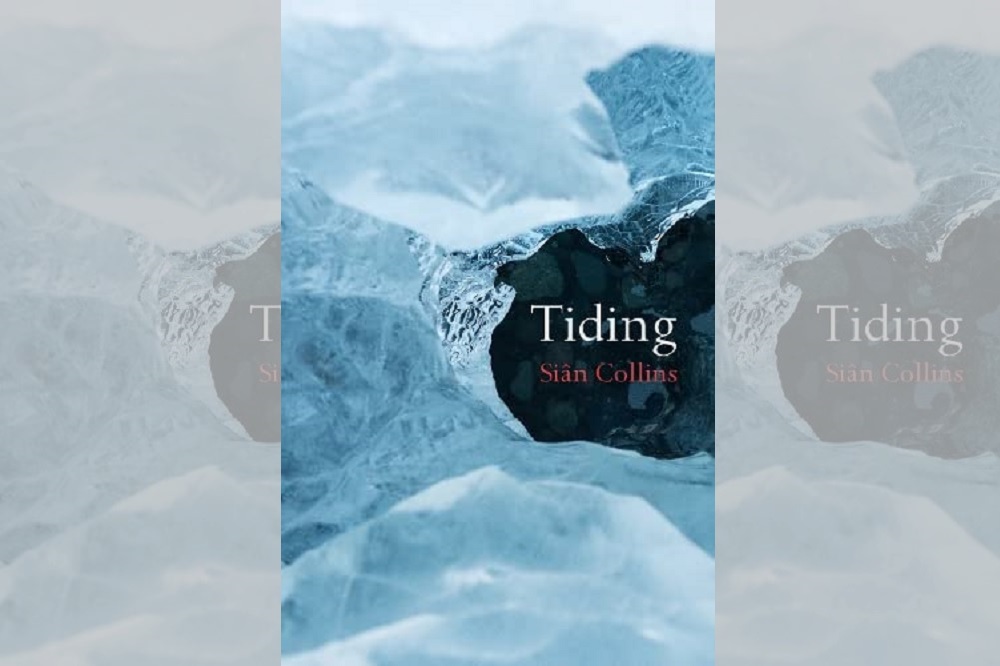Review: Tiding by Sian Collins

Sarah Tanburn
Daphne is the second daughter of Hywel Morgan, vicar to the remote parish of Glanmorfa somewhere in rural western Wales. She is about ten, the year is 1962 and while the world is changing, the little village on the fringes of the salt marsh seems immutable beyond the steady rhythms of the seasons, the tides and the movements of fish.
Nonetheless, the outer world seeps in. During the summer there are tourists, come to the grave of a famous musician. Skirts are getting shorter and, as it does for children, every day brings new marvels and horrors Daphne must strive to understand. Her piano teacher, Miss Eleanor O’Dowd, is one such, an incomer taking on the village youth and herself a gifted player with a bust of Liszt prominent in the parlour. One afternoon, Daphne, for the first time, mitches off on an errand she cannot confess.
A long skein of greyish wool drags in the current, like the hair of a drowned woman. Daphne shivers. The river bank is her playground in daylight but not now when the shadows are falling thick about her… some awful thing – grey, monstrous, flapping – leaps the garden wall and smacks right into her, sending the box and its contents flying and her tumbling off the path, down the bank and into the water.
While she should have been sitting miserably under the composer’s gaze, an unknown caller has bashed in Eleanor’s head. Glanmorfa is no stranger to violence: passions run high in small places. This crime, though, is especially strange, for no-one seemed close enough to the victim to wish her such ill. Scotland Yard sends a London detective to investigate, deeming the local constables too close to the community to be impartial. The self-satisfied policeman fixates on a local fisherman, a youngster who can neither speak nor hear and takes him into custody.
Daphne is unable to say anything of what has happened, but firmly believes, along with her friends, that her doomed errand has brought a curse on the village. Their darkest suspicions are confirmed by the appalling Freeze of 1963, when even the sea turns to ice, birds fall from the sky with hunger and the people must live on what food is in their larders and the beleaguered village shop. ‘Worse than the Somme,’ one grumbles, evoking siege and warfare with the elements, though it is the thaw which brings the mud.
Siân Collins has given us a bleak landscape of her native Pembrokeshire, so enmeshed in cold that reader wants to cwtch into a shawl beside the fire to discover the ending. She offers a fine moral quandary in the shape of Daphne’s confused perceptions of the events around her.
Her father is the kindly, active leader familiar to many rural congregations, called in to any emergency and knowing what to do to resolve a problem and help those around him find peace. Yet even he cannot salvage the fear instilled in the poor young fisherman, or unravel the mysteries of Eleanor’s life before the Second War. Her mother, a teacher, is too busy to pay much heed to her children’s lives: the two sisters must get on as best they can with not much more attention than their parents’ parishioners or students.
Will Daphne tell anyone what she saw that night? And, whether or not she does, what responsibility should a child take for the consequences, for whatever difference such a confession might have made? We are left hanging with this question, a teasing conundrum to which, as Collins points out, there can be no simple answer.
Glanmorfa is a complicated place indeed, its dramatic landscape filled with quirky, skilfully-drawn characters. Even the minor players are delightfully detailed, as is her friend’s grandmother with her ‘drawerful of dolly mixtures, the lacy bedjacket, Granny Gloria’s white braid lying across the coverlet. A flutter of tiny wings and she was gone.’
The affection and care which Collins lavishes on such characters results in fine writing: we might all wish to have known a Granny Gloria, or even to become one to future generations. Not many writers can make us relish the end of a long, well-loved life in such a way. Gloria’s demise, secure in her own family, is a stark contrast to the other deaths haunting Daphne, offering us all the vista of our own choices and those inflicted on us by others.
These are not the ‘good old days’: there were never any ancient verities to be found in the shifting landscape, the incomers and visitors, the shifting alliances between families. Daphne learns that justice cannot be guaranteed. Yet there are certainties here too: the love of family, the power of hymns sung together and the return of the spring. While the weather warms up around us, but with the risk of further icy blasts before summer settles, put another log on the fire, tuck a blanket around your knees and enjoy a thoroughly good read.
Tiding by Siân Collins is published by Honno and available from good bookshops.
Support our Nation today
For the price of a cup of coffee a month you can help us create an independent, not-for-profit, national news service for the people of Wales, by the people of Wales.






